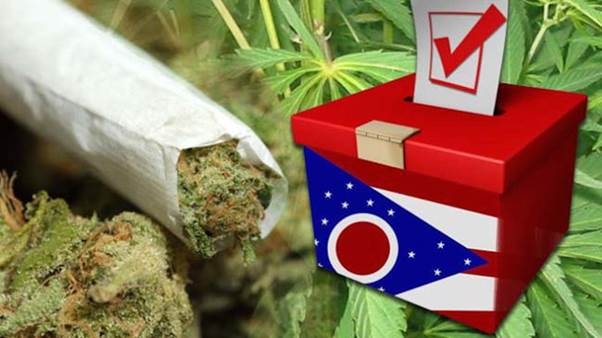The November election is just around the corner. Voter registration is in full swing (and early voting has already begun in a few states).
Marijuana measures are on the ballots in at least nine states. These measures include recreational use proposals in five states (Arizona, California, Maine, Massachusetts, Nevada). There are also medical marijuana proposals in another four states (Arkansas, Florida, Montana, North Dakota). Although public opinion generally supports marijuana legalization (see here and here), early forecasts for these nine measures are mixed; passage is anticipated for a few, while several others are expected to be rejected.
Regardless of the number of measures that pass, it is a given that marijuana continues to gain acceptance. As a consequence, marijuana in the workplace issues are here to stay. Are you ready? The Bullard Edge offers this two-question pop quiz (we apologize for the typo in the title above) on issues you may see. This is not one of those quizzes where the high score wins. Good luck.
Scenario #1 – Something In The Air:
Like many companies in town, Mid-Town AC has a “zero tolerance” drug and alcohol policy. Among other things, its policy prohibits an employee from using or possessing illegal drugs in the workplace, on company premises or property, during work time, while representing the company, or in any circumstances that might adversely affect operations or safety. It is a very strict policy and it applies to all employees, including bookkeeper Mary Jane Burns.
HR summoned for a meeting to discuss reports of possible marijuana use. The reports originated with employees working near Mary Jane who spoke with her supervisor after noticing that she smelled like marijuana. One of those reporters complained about unfairness: “How come nobody disciplines Mary Jane? She reeks from pot use. Why does she get to use pot without being penalized, while the rest of us would face termination if we were caught using?” This complaining employee also had a picture she claimed to have taken the day before. The picture appeared to show Mary Jane in her car outside of a marijuana dispensary called The Blunt Truth. All of this information had prompted the supervisor to report Mary Jane to HR for suspected marijuana use.
HR opened the meeting by asking Mary Jane if she was aware of Mid-Town AC’s drug and alcohol policy. This was a trap question; all employees, including Mary Jane, had signed acknowledgments of receipt of the policy. Mary Jane said she knew about the policy and asked why she had been called to this meeting. HR told her that it had reports and evidence suggesting she had used marijuana in violation of company policy.
Mary Jane angrily denied any use of marijuana and said it was offensive to even be asked about it. While she admitted that her clothing carries a faint pot odor (marijuana will do this), Mary Jane reminded HR that her husband experiences severe pain related to a degenerative neurological condition and uses marijuana to address the pain. That use, despite her best efforts to effectively launder, is the only reason her clothes reek.
Question: What should HR do next?
Scenario #2 – Pot Shop:
Let’s keep the same general scenario involving Mid-Town AC and its employee, Mary Jane Burns. As before, Mary Jane works as a bookkeeper and finds herself called to HR to be interviewed regarding alleged marijuana use. Her supervisor made this report to HR after Mary Jane’s colleagues had noticed that Mary Jane smelled like marijuana and after one produced a picture of Mary Jane in her car outside of The Blunt Truth, a marijuana dispensary.
HR opened the meeting with Mary Jane by asking her if she was aware of Mid-Town AC’s drug and alcohol policy (trap question). Mary Jane responded by saying that she knew about the policy and asked why she had been called to this meeting. HR told her that it had reports and evidence suggesting she had used marijuana in violation of company policy.
Mary Jane angrily denied any use of marijuana. She told HR that the faint marijuana odor on her clothes did not give the company a basis to suspect her of violating the drug policy. HR responded by showing Mary Jane the picture of her in a car outside The Blunt Truth.
The picture seemed to surprise Mary Jane, who paused and took a deep breath before confirming the authenticity of the picture. Mary Jane explained that she and her husband are investors in the dispensary, which operates in strict compliance with state law. Mary Jane said that she periodically visits the shop because of her financial interest in it. Further, she stated that while she admits to being a marijuana proponent, she is not a user and had not violated company policy in any way.
Question: What should HR do next?
Answer to Scenario #1 (Something In The Air):
HR should follow the drug and alcohol policy and its normal practices.
The reports received regarding the smell of marijuana are accurate; HR can confirm that after spending 20 minutes in a room with Mary Jane. Moreover, HR has a photo of Mary Jane in her car outside of The Blunt Truth. If these objective facts give the company reasonable suspicion to believe that Mary Jane might be in violation of the drug and alcohol policy, then the company should follow the “reasonable suspicion” provision in its policy and require a drug test.
If Mary Jane were to test positive, the company ought to discipline her in a manner consistent with the policy and past practice. Most likely this would mean termination or the offer of a last chance agreement.
However, if the drug screen is negative, Mary Jane should not face discipline because she has not violated the drug and alcohol policy. It would be a stretch to construe her to “possess” marijuana in the workplace just because her clothes carry the smell.
Moreover, as The Bullard Edge noted in a prior post, per 42 USC §12112(b)(4) it is unlawful to discriminate against an applicant or employee in employment or benefits “because of the known disability of an individual with whom the qualified individual is known to have a relationship or association”. In other words, taking action against Mary Jane because of her husband’s marijuana use likely would be associational discrimination under the ADA and state law.
Answer to Question #2 (Pot Shop):
Just as before, HR should follow the drug and alcohol policy and its normal practices.
The reports received regarding the smell of marijuana are accurate; HR can confirm that after spending 20 minutes in a room with Mary Jane. Moreover, Mary Jane admitted that the photo of her in her car outside of The Blunt Truth is authentic. If these objective facts give the company reasonable suspicion to believe that Mary Jane might be in violation of the drug and alcohol policy, then the company should follow the “reasonable suspicion” provision in its policy and require a drug test.
If Mary Jane were to test positive, the company ought to discipline her in a manner consistent with the policy and past practice. Most likely this would mean termination or the offer of a last chance agreement.
However, if the drug screen is negative, Mary Jane should not face discipline because she has not violated the drug and alcohol policy. It is a “zero tolerance” policy that prohibits the use or possession of illegal drugs. The drug test shows no violation of this part of the policy.
In addition, the policy also prohibits an employee from selling and/or offering to sell illegal drugs in the workplace, on company premises or property, during work time, while representing the company, or in any circumstances might adversely affect operations or safety. Mary Jane may not be personally selling, but a business that she owns is selling. This is not a violation of Mid-Town AC’s policy, though. The key facts are that (a) Mary Jane’s business is not operating in the Mid-Town AC workplace or on company property and (b) Mary Jane is not doing anything for The Blunt Truth while working for Mid-Town AC or otherwise representing her employer. It would also be a stretch to say that Mary Jane is in any way adversely affecting company operations.




